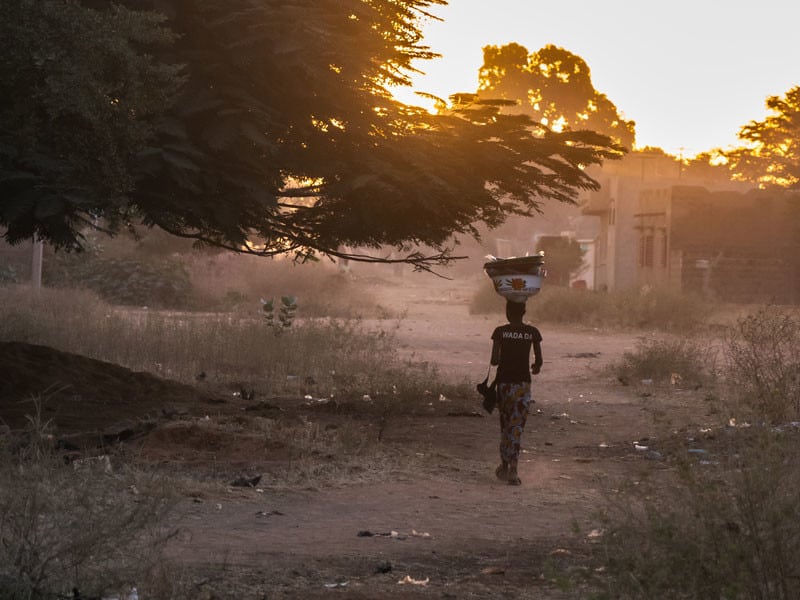Comprehensiveanalysis could lead to a more resilient and responsive governance system
The Republic of Malié fraught with tension between its governance system and thoseisto is meant to ultimately benefit, the people. Its governance is complicated bya history ofattempts to devolve responsibility and authority entre clashing ethnic groups que seek to be recognized and respected.UMrmed conflict, which remains ongoing in many of its central and northern communes, tem upendEd the rules of local governance.
Mali Peacebuilding, Estabilização, e Reconciliação (PSR) projeto éeeks to understand thecomplexity ofMali’s governance system em 46 communes where it operates. Financiado peloNÓS. Agência para o Desenvolvimento Internacional eimplementado pela Creative, the project undertook a major studypara assess levels of conflitoquetemallowed itto paint a larger and more nuanced picture of the conflict dynamics in each commune.
Working in collaboration with theRede da África Ocidental para a Construção da Paz (WANEP), the project used CriativoéFragilidade Resilience Assessment Methodology (Quadro®), a toolque provides citizens’ perspectiveé sobreteleresponsiveness ofcommune governance system, and pairEd it withInformaçãogathered através an adapted version ofUSAID Interagency ConflictUMnalysis Frametrabalhar (ICAF).
Ao mesmo tempo, Criativo collaborated withoUniversity of Letters and Human Sciences of Bamako (ULSHB) to conductoeQuadro® analysis. The findings were captured in arelatório, Path to Resilience.

Systematic challenges: Trust and legitimacy
Teleabrangenteanalysis shed light on actions that could lead to building a moreresilient andresponsive governance system. The findings challenge leadersparaaddress thesystematic problems of governance in Mali -problems that hold in place traditional roles andrelationships among different ethnic or economic actors edo not recognize or respect the needs of others.
For Mali, the efficacy of the system is largely challenged by two factors: euutual trust that actors in the system will respect decisions made (trust and confidence); and the social contract (system legitimacy).
Infelizmente, tele weakness of thesefactorsundermines nearly every dimension of the governance system, from leadership to economicfoundations.Even whereumdimensionera perceived as functioning, such as citizen participation, the overall trust, confidence and legitimacy of the systemeramquestioned. In a highly conflict–affected state like Mali, ore is preocupação que esses factors will retard attempts to strengthen or establish social cohesion and performance of the system.
Geral, eueading communes along the path to resilience will require more than bringing theétate back to whatsão perceived as ungoverned spaces. The lack of trustentre cidadãos, which may be exacerbated by the absences of theétate, is also a reflection of frayed relations, frustration and power dynamics that existeque cannot be addressed by theétate sozinho. Placing all the responsibility and expectation that the étate is the only actor to facilitate peace and foster stability is not a recipe for success.
Information to action
Upon completing the study, oConstrução da paz, Estabilização, e Reconciliação programa recognized that éuch an in-depth and criticalanalysis requires the involvement and understanding deMalians and non-Malians alike, across several regions, social lines andpolítico affiliations.
Emearly 2020,o programa began disseminatingPath to Resilience entre administrative, political and security authorities, including the Ministry of Territorial Administration and Decentralization, and local community organizations, such as Community Engagement Committees (CEC), which are present in nearly all communes where the programopera.
Participants involved nodisseminationhave recognized o EUCAF/Quadro® cross-analysis‘ ability to identify grievances andthe drivers ofconflict but also thecharacteristics of resiliencethat existem their communes.
Oumar Konaté, telePresident of theCommunity Engagement CommitteesdeAnsongo doGao region, comentou: “We are really satisfied with the results of the intersectoral analysisbecause the grievances identified by this analysis are the real problems that our commune suffers from. Everything that can or must lead us towards peace, we are willing and available to go in that direction. Thankyou, PSR, for the quality of this work. From now on, the Community Engagement Committee will draw inspiration from the results of theEUCAF andQuadro® studies to strengthen peace and coexistence.”
While perceptionsunveiled peloQuadro®/ICAFestudar will likely change ao longo do tempo in a constantly evolving context, testimonies like the one from Mr.Konaté, substantiatethat the resultsdePath to Resilience euargely reflectoreality of those exposed toconflict and violent extremism no Mali.
More information on howQuadro® was conducted and suas descobertas can be found in thefullPath to Resilience relatório.
Afia wa Mwenze is a Program Associate in the Governance Practice Area at Creative. Débora Kimble is the Director of the Practice Area.